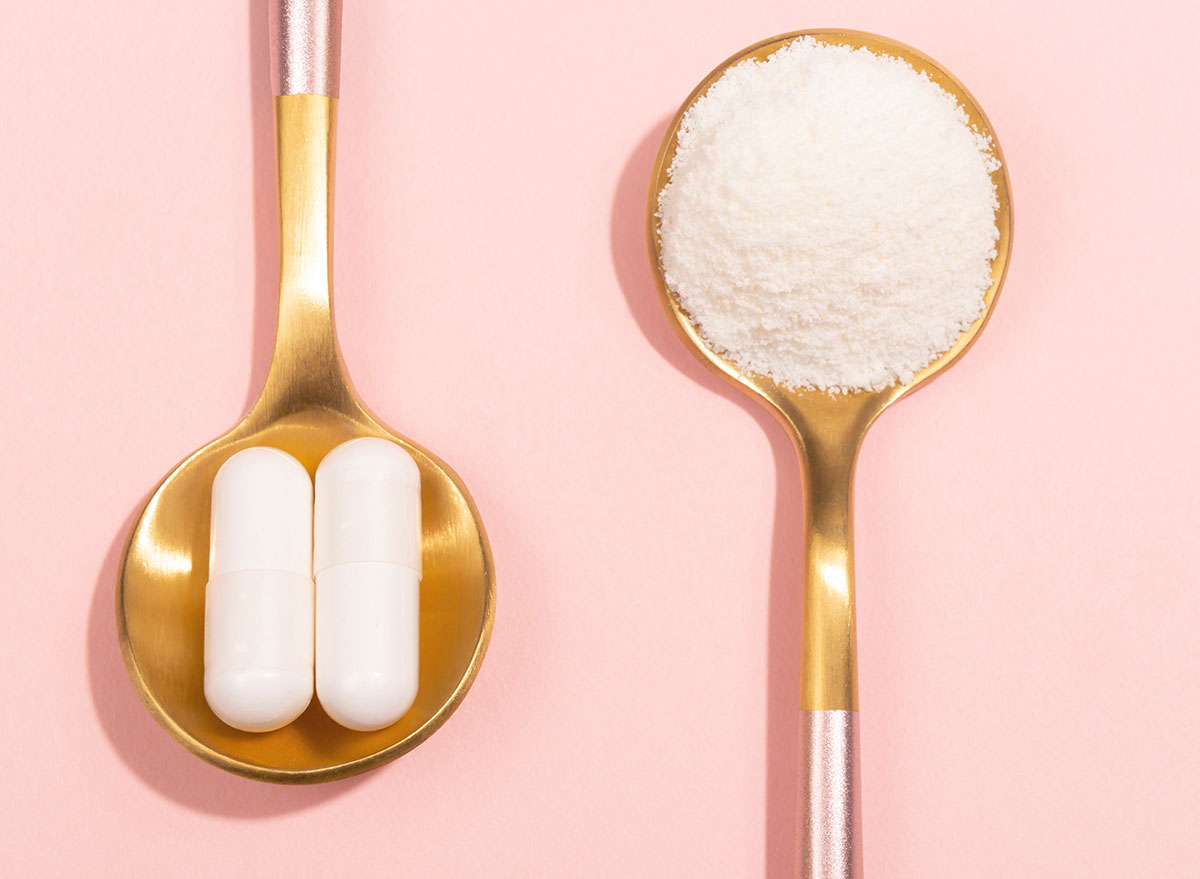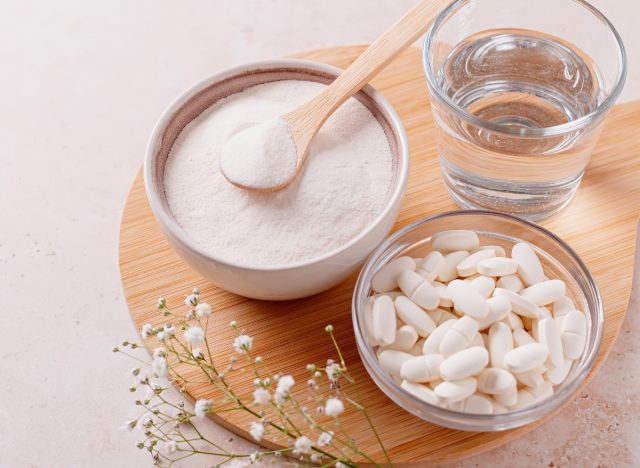Is Collagen Healthy? A Dietitian Weighs in Once and for All

For a long time, bone broth was the trendiest health food around. Then, as people latched onto the idea that collagen was the source of the steamy liquid's potential health benefits, more people started to talk about collagen benefits; thus, collagen supplements began to appear everywhere.
There are now collagen powders, gummies, and other packaged foods spiked with collagen all over the place. Many promising results like better skin, improved gut health, and protection for aging bones and joints. So, is it all marketing, or should you really be adding collagen to your smoothies? And while you're learning about this protein, make sure you check out 10 Trendy Supplements You Should Actually Be Skeptical Of, too.
What is collagen, and why do you need it?

Collagen is obviously important, considering it's the most abundant protein in the body. And like most molecules, it has more than one responsibility: It makes up joint-supporting connective tissues, is responsible for skin elasticity, and helps maintain the lining of the digestive tract, to name a few.
The body makes collagen on its own, but production slows down as you get older (like, ahem, a lot of things, unfortunately), which is why many people say adding it to your diet—especially as you age—is a good idea.
Do collagen supplements actually work?

Logically, then, taking in a little collagen to make up for what your body isn't producing makes sense. But ingested nutrients don't always translate into your body having more of said nutrient. (Eating fat, for instance, doesn't necessarily add to fat stores in the body, because your body processes and uses it in a specific way.)
Following that line of thinking, many experts believe that when you ingest collagen, your digestive system simply breaks it down and absorbs the amino acids like it would amino acids from any protein. Basically, your body isn't necessarily absorbing them and then rebuilding them back into the exact collagen structure and sending them on to plump up your skin.
To that end, the research on whether collagen supplementation has benefits is minimal. Small, limited studies have shown supplementation may reduce joint pain in athletes and among individuals with osteoarthritis. The research on whether it can improve skin quality is far from definitive, but some studies have shown that collagen supplements may increase the amount of collagen and elastin in the skin and significantly reduce wrinkles. In terms of gut health, many functional medicine physicians recommend collagen, but the evidence appears to be primarily anecdotal.
My advice on collagen

We know your body needs collagen, but it's not totally clear if ingesting collagen will help address that need. I think the small amount of research and anecdotal evidence suggests there's a decent case for adding it to your diet, especially as you age. If nothing else, it's a healthy source of protein. And if you're getting it from bone broth rather than supplements, you're going to be slurping up lots of important minerals, too.
When buying supplements, make sure you reach for powders with very few, simple ingredients (ideally just "collagen peptides" or "collagen protein isolate") and watch out for additives, flavors, and sugar. Watch the source, too: Try to buy a product that is NSF certified for safety and from a company that is transparent about their sourcing.
My most important bit of advice, though, is this: you can help your body make its own collagen! Your body needs vitamin C, minerals, and certain amino acids to synthesize it, so try to get more of those nutrients in your diet, by eating some of my favorite collagen-boosting foods.








